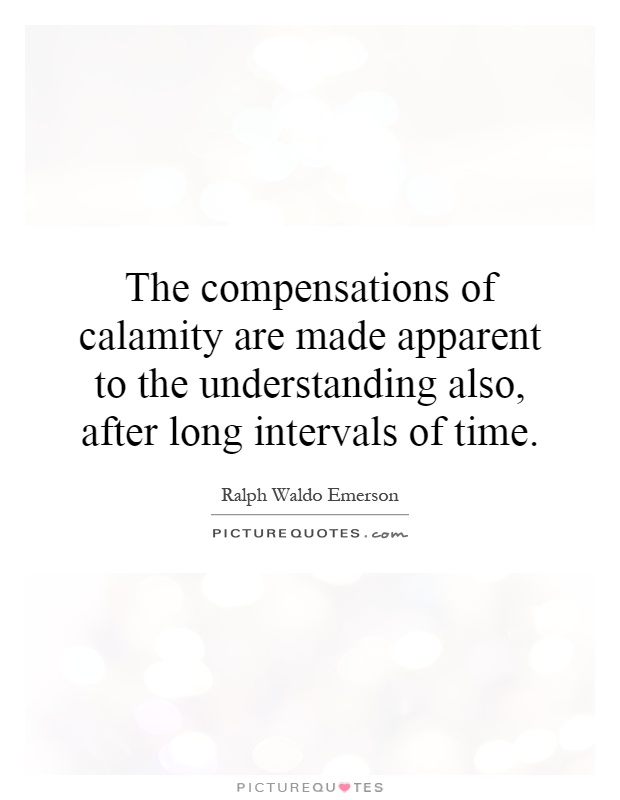The compensations of calamity are made apparent to the understanding also, after long intervals of time

The compensations of calamity are made apparent to the understanding also, after long intervals of time
Ralph Waldo Emerson, a renowned American essayist, poet, and philosopher, often explored the concept of finding meaning and growth in the face of adversity. One of his most famous quotes, "The compensations of calamity are made apparent to the understanding also, after long intervals of time," speaks to the idea that even in the midst of suffering and hardship, there is the potential for growth, learning, and ultimately, a deeper understanding of oneself and the world.Emerson believed that challenges and setbacks are not just obstacles to be overcome, but opportunities for personal growth and self-discovery. He understood that it is often in times of struggle and adversity that we are forced to confront our own limitations, fears, and weaknesses, and in doing so, we are able to cultivate resilience, strength, and wisdom.
Emerson's quote suggests that the true value of calamity may not be immediately apparent, but rather revealed over time as we reflect on our experiences and learn from them. It is through the process of introspection and self-examination that we are able to uncover the hidden lessons and insights that can be gained from even the most difficult of circumstances.












 Friendship Quotes
Friendship Quotes Love Quotes
Love Quotes Life Quotes
Life Quotes Funny Quotes
Funny Quotes Motivational Quotes
Motivational Quotes Inspirational Quotes
Inspirational Quotes